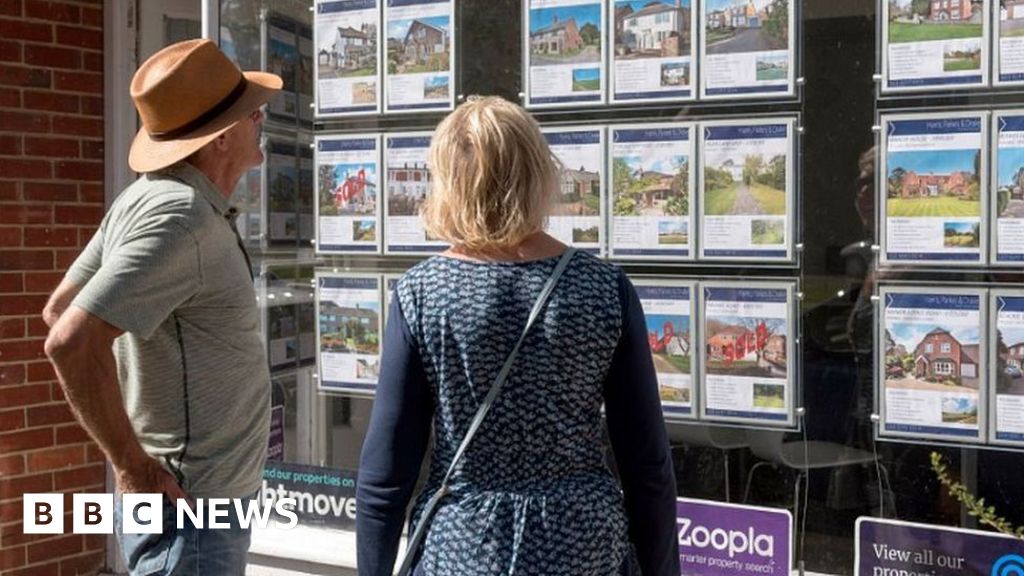Lower mortgage costs and more interest rate cuts could fuel a rise in house prices for the rest of this year, Halifax has said.
The mortgage lender’s prediction came after property prices ticked up in July following a flat few months.
Halifax said recent mortgage rate drops were “encouraging” for first-time buyers, those moving along the housing ladder or those refinancing.
But it warned affordability challenges and lack of available properties still posed problems for buyers.
“Against the backdrop of lower mortgage rates and potential further [Bank of England] base rate reductions, we anticipate house prices to continue a modest upward trend throughout the remainder of this year,” Amanda Bryden, head of mortgages at Halifax said.
Last week the Bank of England lowered interest rates to 5% – the first cut since the start of the pandemic in March 2020, but its governor warned not to expect a flurry of further reductions.
The Bank’s rate dictates the cost of borrowing set by High Street banks and money lenders for the likes of mortgages and credit cards.
Higher rates over the last two and a half years have put pressure on household finances, although returns for savers have improved.
While mortgage rates have fallen, deals still remain much higher than a few years ago, meaning homeowners refinancing or first-time buyers are facing increased costs.
On Wednesday, the average two-year fixed mortgage was 5.74%, while the typical five-year deal was 5.36%.
The UK’s largest lender said a typical property cost £291,268 in July, up more than £2,200 compared to the previous month, “following three relatively flat months”.
Ms Bryden said annual house price growth in the year to last month was 2.3%, the highest rate since the start of this year.
Halifax said the Northern Ireland continued to record the highest house price growth last month – 5.8% – compared with any or nation or region in the UK.
The only region to record a fall was eastern England.
Holly Tomlinson, financial planner at wealth management company Quilter, said the housing market could “start to heat up” after the Bank of England cut rates for the first time in more than four years.
She said while the cut would have a minor impact on repayments for variable and tracker mortgages, and no change for fixed-rate deals, the “change in rates does a lot for buyer and seller confidence”.
“A feeling that rates are going in the right direction though will help many people decide to take the leap back into the market, pushing up demand for homes,” she said.
Ms Tomlinson added those “on the fence about selling” their home may also decide to go ahead.
But, while house prices rising was “good news” for homeowners, she said it made it more difficult for first-time buyers to get on the property ladder.
Financial investors are betting the Bank is more likely to cut interest rates in November, rather than at its next meeting in September.
Competition between lenders has intensified in recent weeks, both ahead of the Bank’s latest rate decision and subsequently.
The last few days have seen HSBC and Barclays battle over rates on five-year fixed deals, although these – and other headline deals – are targeted at borrowers who are able to offer a relatively large deposit.
Halifax, one of the biggest mortgage lenders in the UK, bases its figures on house prices on its own lending and its statistics do not include buyers who purchase homes with cash, or buy-to-let deals.
Cash buyers account for about a third of housing sales.
